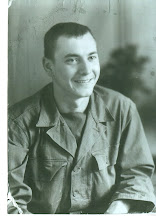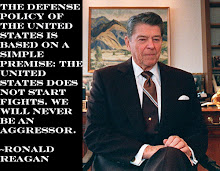The scandal at Abu Graib Prison reminded us that human institutions, no matter how valorous, are subject to human fallibility. I was deeply disturbed by that case for fear that the lower enlisted members were scapegoated for something they could not possibly be responsible for. No person knows what it is like to be in their shoes except those of us lower enlisted troops who did those kinds of missions over there, so I will not try to explain it. For me, it calls attention to a part of the Army that rarely makes headlines and recruiters rarely will speak about. The large bulk of the Army is effective and filled with leaders ranging from good to great. However, military leaders should recognize and address fundamental institutional flaws which weaken the institution.
I have written this essay in response to the many times I have been asked by potential Army recruits, “what was the Army like?” I answered the question hundreds of times in pieces and decided to write it all down. Eventually, I realized that I had developed a theory on what I was part of and that I had many suggestions for how to improve the organization which did so much for me.
I joined active duty in 1997 soon after high school. I was virtually completely unaware of what I was getting into, I had only seen the exciting commercials and listened to what recruiters told me. I had virtually no military exposure growing up. I was a Chemical Operations Specialist and I served in two units on active duty: the 4th Chemical Company in Korea for a year deployment and A 1/7 ADA in Ft. Bliss. After this, I joined the Army Reserves and served very shortly in 2 units, spent two years with one MP unit, one year with another and was deployed to Operation Iraqi Freedom with a reserve chemical company. Throughout these times I worked in both headquarters platoons were I was close to unit leadership and other type platoons were I spent my time in the field and motor pool.
I joined under the slogan “Be All You Can Be In the Army.” Like many civilians after the Gulf War, I thought of the Army as the most efficient and capable institution in world history. In my youth and inexperience I was naïve and idealistic – I expected some sort of robotic machine which made no mistakes and had no problems. Years later, I have come to think of it as an institution like a spear head: one that was sharp at the tip but often rusty along the edges. Upon much reflection, the following essay outlines my views on the edges: the fundamental problems I saw with the units I was exposed to. Unquestionably, other soldiers have had different experiences.
Hopefully this essay will be good for potential recruits to see a side of the picture they will not get from recruiters. I cannot thank the Army enough for the things I learned there. I came out with confidence, something impressive to put on my resume and money for school. I was exposed to some of the best leaders I have ever known. However, I also believe I worked some of the worst human beings I have ever been exposed to. I worked for a few people who abused the system to hide their incompetence and/or corruption – often at the expense of their subordinates.
I care deeply about the military and I want it to become a better institution for young people to be part of. I believe it is fundamentally flawed and that it can be corrected – there are some units which are great institutions and others which are corrupt and/or incompetent. I believe this largely stems from fundamental institutional flaws. People joining should know this and make their decision in context of whether they are willing to subject themselves to either possibility.
Part I
The problem with the military is in its fundamental approach and the resulting attitude.
One would think that the military would center around a central goal or purpose. A good example of an abstract "mission statement" would be something organized around the "Max Doctrine" -- for example, something like a mission to "maximize capability to accomplish any mission, any time." This is the anathema to the military's status quo. The military presently focuses around what I will call "The Adequacy Doctrine." Incentive structures will always determine the ability and culture of any institution -- people do what they have an incentive to do, they do not do what they have no incentive or a disincentive to do.
Take physical training for example. If the military were to organize around the "Max Doctrine" it would be logical that a system be instituted that would reward a soldier who works to maximize her overall physical fitness and discourages any sort of complacency or poor performance. The Army might institute a comprehensive physical training assessment, offering incentives for soldiers to compete with others and reward those who excel. Instead, the Army has merely 3 events, hardly a comprehensive assessment and has set arbitrary minimum repetition amounts that fluctuate based on age and sex. There is a so-called maximum standard set at a score of 300 on the translation chart. This creates virtually no incentive to excel for those who feel they cannot achieve the "300" score, and no incentive to improve for those who can score a 300. The incentive to do more than simply "pass" the test is negligible.
The Army instituted minimum physical training requirements, apparently because every soldier needs to be physically capable of handling at least a certain, measurable, amount of physical rigor, or that soldier would be a detriment to the unit mission. This mentality has bread an environment of resentment and complacency, particularly for soldiers who joined the Army under the slogan "be all you can be in the Army." If it is true that physical training matters in determining a soldiers ability to contribute to the unit mission, then it is logical to assume that the better physical condition a soldier is in, the more he can contribute to the unit mission. Encouraging soldiers to be merely adequate hurts the mission. Letting those who desire to excel remain subordinate to those who are merely adequate fosters resentment and hurts the mission.
This approach pervades military culture. This approach is used in almost every aspect of military life. Minimum standards are used to assess: promotions, unit accreditation's, disciplinary actions, bonuses and virtually everything else. Instead, there should be open competition for each of these things within units. Those who excel get rewards, those who do not are given remedial attention. Fairness should be considered only inasmuch as it moves the unit toward the mission statement. No arbitrary considerations should be taken into account such as race, age or sex, lest they bring about an image of arbitrary advancement. All people should be on a equal playing field, compensation should only be offered for categories which advance the unit mission statement. No person should ever say they attained more success or higher pay by anything short of demonstrating higher ability and inspiring more confidence than one's peers. Just like a football team pays the highest salary toward and starts the best quarterback on the team, the Army should put in the best leader for the job.
Would a football team set a minimum standard, and hire any quarterback who meets it? No. Furthermore, the team would not hire a particularly skilled quarterback who is disliked by the team. They balance the quarterback with the most skill and the one who will inspire confidence.
I would use the rank structure and pay to change the incentive structure. Soldiers of all ranks would be paid and hold rank based on a comprehensive point system that would create incentives to further the "max doctrine." Rank and pay would be based strictly on the point system -- promotion given to those with high points, demotion given to those who consistently are surpassed by other soldiers. The system would take into account time in service to account for the diminished physical ability that comes with age. However, younger soldiers could also continue to compete -- a lack of time in service could be compensated for by educational accomplishment overwhelming physical accomplishment, high review assessments or a combination thereof.
Part II
I feel that review assessments are extraordinarily important here. Presently, a soldier can maintain a position of superiority over those who are more capable than him/her because of the existing system which arbitrarily offers job security after promotion with little or no accountability. Because of their daily interactions, one's subordinates are in a much better position to assess their performance than one's superiors, and (this point I cannot stress enough) it absolutely does matter what subordinates think about their superiors toward the goal of mission accomplishment -- even when viewed through the lens of the Adequacy Doctrine, no less through the lens of Maximization.
There is a prevalent view in the military that superiors can expect performance through orders only, relying on the rank structure to accomplish unit missions. In reality, the environment this creates is detrimental to unit accomplishment, no less maximization. When soldiers feel their superiors lack the overall unit's respect and confidence, the unit mission is hurt no matter what the superiors do. No amount of action can correct the difference between a unit with respected leaders vs. one with those who are merely adequate.
The competition which does exist at the higher levels is largely political and this is where the importance of review assessments comes in. Practically speaking, soldiers in positions of authority must have the confidence of their subordinates -- presently there is no demand on this whatsoever. Many soldiers of medium to high rank are promoted with virtually no respect from their subordinates because they were at least adequate for promotion to their superior officers. This provides no incentive to be a good leader to ones subordinates -- not that there are no great leaders, this is only to say that their is virtually no institutional incentive to be one. I do not propose a popularity contest, merely that it be taken into account whether soldiers feel a particular leader has his unit's confidence so that Maximization can be fostered.
Conclusion
Secretary of Defense Donald Rumsfeld once said to a crowd just a few miles from where I was stationed in Kuwait, “You go to war with the Army you have, not the Army you want.” This was highly offensive to me. Our politicians need to realize that no matter how advanced we get, common sense and the evidence is overwhelming that we will always have to fight with soldiers[1] (often called, “boots on the ground”) no matter what, unless we want to completely demolish the people and territory we fight with. This means the Army must focus on soldiers and building from the ground up, soldier to soldier using the latest methods of training. They must never sacrifice this in the name of technology or weapons. A better soldier can do more with less weapons.
Military leaders are often adverse to change. In fact, they are taught that things should rarely change. For example, Napoleonic Warfare was taught at West Point all the way up to World War I. Even today, while modern warfare hardly resembles that of colonial Europe, yet there still remain cumbersome remnants of old European aristocratic tradition. Vietnam forced the military to institute massive positive changes. The next steps have been largely already taken by private firms which take a market-based approach to military careers. Few people realize it, but there are nearly twice as many contractors in Iraq and Afghanistan than troops. Many of the armed contractors are formers US troops. Generally, they are better trained and equipped than our current troops and are paid far more.
I predict that if the military does not take some kind of steps to modernize, private firms will continue to dominate and the existing governmental Army will become nothing more than a color guard used for formal occasions. I hope this never becomes the case and recommend to anyone joining that there are more things to consider than college money.
Family Tradition of Service
Welcome to my military blog. Here I will write stories about the times I had in the military and what I learned from them. I also have many opinions on the military that I like would like to write about.
In 1997, when I graduated from High School I planned on either being a pro baseball player or joining the Army. Since the former did not work out, I shipped out on July 23, 1997. At the time I really was not even aware of all my two grandfathers had done. I had only talked about it in passing with them.
My mother's father served in the Korean War and my father's father served in WWII. Both were in active combat and married soon after they came back...so I am truly the descendant of the baby-boom generation.
As it turned out, after I joined my first duty station was at Camp Casey Korea, which was very near where my mother's father was stationed during the active Korean War. A few years after I came back, my father's father died before I ever really got to discuss everything the way I would have liked. However, for several years now, my mother's father and I have discussed our experiences on several occasions.
I have had mixed feelings about the military. The good part is the people - the people you serve with are incredible and you develop a bond that is hard to live without afterwards. The bad thing is the lack of commitment by the leadership in Washington to sound principles of national defense. However, I am proud to say that I have done it and I learned a lot - for the better and sometimes for the worse.
As civilians, it is our responsibility to vote for leaders who are committed to sound national defense - policies such as deterrence, Christian Just War theory, and soldier-first commitments.
In the future I will expand on this section greatly. I have tons of things I want to write about, so check back on occasion!
It is hard to watch private firms take over the U.S. military's mission. I believe this has happened for several reasons. We must be careful to remember this may create an incentive to fight wars more often as inevitably, some in Washington will say (and many so-called "neo-conservatives have said) "we have a awesome military, why not use it?" Although I greatly prefer a civilian commander in chief, I also believe that the military should be used sparingly as an instrument of foreign policy.
I fear that this view has become less respected in the pubic square, as many have argued that the U.S. should more aggressively attack or threaten other nations. In arguing against such policy, I remind people that although we should always be vigilant in being prepared to overwhelm those who would do us harm, I hope Americans have not forgotten about the ideas like that of the Christian Just War theory, and the warnings of President Eisenhower, and Washington.
Politicians must remember that, like President's Reagan, Eisenhower and others, they can be strong on national defense, and have deep disgust for acts of war at the same time. No person should be willing to tolerate either the peace of slavery, nor the hell of war.
Deterrence requires two elements: ability to defend yourself, and perceived willingness to do such. U.S. policy should always seek to achieve these ends. History shows that great nations loose their advantage when they are over-extended, perceived to be used for political purposes, or perceived to engage in arbitrary attack.
Furthermore, the http://www.foreignaffairs.org/20030701faessay15404-p0/max-boot/the-new-american-way-of-war.html">overwhelming evidence is clear that modern technology cannot replace soldiers in achieving military missions. Our political leaders should not engage in political favoritism with defense spending. The training and investment in soldiers is the key ingredient to building a sound national defense.
In 1997, when I graduated from High School I planned on either being a pro baseball player or joining the Army. Since the former did not work out, I shipped out on July 23, 1997. At the time I really was not even aware of all my two grandfathers had done. I had only talked about it in passing with them.
My mother's father served in the Korean War and my father's father served in WWII. Both were in active combat and married soon after they came back...so I am truly the descendant of the baby-boom generation.
As it turned out, after I joined my first duty station was at Camp Casey Korea, which was very near where my mother's father was stationed during the active Korean War. A few years after I came back, my father's father died before I ever really got to discuss everything the way I would have liked. However, for several years now, my mother's father and I have discussed our experiences on several occasions.
I have had mixed feelings about the military. The good part is the people - the people you serve with are incredible and you develop a bond that is hard to live without afterwards. The bad thing is the lack of commitment by the leadership in Washington to sound principles of national defense. However, I am proud to say that I have done it and I learned a lot - for the better and sometimes for the worse.
As civilians, it is our responsibility to vote for leaders who are committed to sound national defense - policies such as deterrence, Christian Just War theory, and soldier-first commitments.
In the future I will expand on this section greatly. I have tons of things I want to write about, so check back on occasion!
It is hard to watch private firms take over the U.S. military's mission. I believe this has happened for several reasons. We must be careful to remember this may create an incentive to fight wars more often as inevitably, some in Washington will say (and many so-called "neo-conservatives have said) "we have a awesome military, why not use it?" Although I greatly prefer a civilian commander in chief, I also believe that the military should be used sparingly as an instrument of foreign policy.
I fear that this view has become less respected in the pubic square, as many have argued that the U.S. should more aggressively attack or threaten other nations. In arguing against such policy, I remind people that although we should always be vigilant in being prepared to overwhelm those who would do us harm, I hope Americans have not forgotten about the ideas like that of the Christian Just War theory, and the warnings of President Eisenhower, and Washington.
Politicians must remember that, like President's Reagan, Eisenhower and others, they can be strong on national defense, and have deep disgust for acts of war at the same time. No person should be willing to tolerate either the peace of slavery, nor the hell of war.
Deterrence requires two elements: ability to defend yourself, and perceived willingness to do such. U.S. policy should always seek to achieve these ends. History shows that great nations loose their advantage when they are over-extended, perceived to be used for political purposes, or perceived to engage in arbitrary attack.
Furthermore, the http://www.foreignaffairs.org/20030701faessay15404-p0/max-boot/the-new-american-way-of-war.html">overwhelming evidence is clear that modern technology cannot replace soldiers in achieving military missions. Our political leaders should not engage in political favoritism with defense spending. The training and investment in soldiers is the key ingredient to building a sound national defense.
Saturday, February 2, 2008
Subscribe to:
Posts (Atom)









